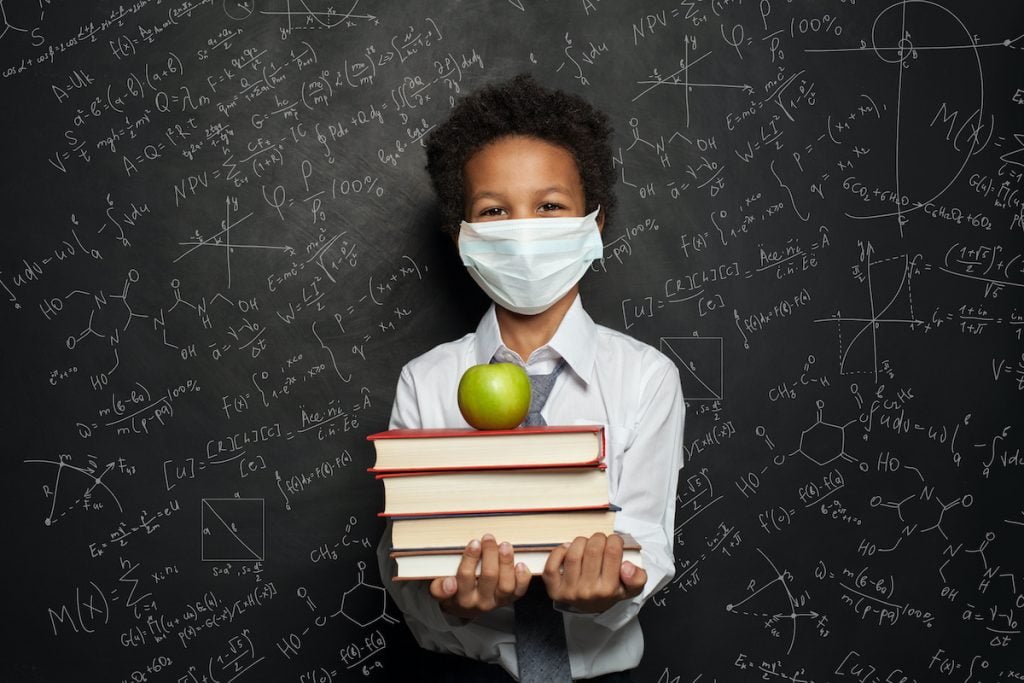5 Face Mask Myths Debunked
October 19, 2020

Health care professionals and experts around the world agree that wearing a face mask is one of the best ways to protect against COVID-19. However many face mask myths now circulate, leading people to believe they are unnecessary or don’t work. To understand why face masks work, it’s important to understand how coronavirus spreads and debunk common face mask myths.
How Does COVID-19 Spread?
COVID-19 mainly spreads from person to person through respiratory droplets produced when an infected person coughs, sneezes, or talks. These droplets can land in another person’s nose or mouth and possibly be inhaled into the lungs, transmitting the infection. Droplets are more likely to be spread in close contact, which is why many cities initially instituted lockdowns and put social distancing measures in place.
What Are Common Face Mask Myths?
Since quarantine restrictions around the country have ended, people are venturing into public and coming into more contact with others, and many public spaces have face mask requirements. With those requirements, misconceptions about face coverings have spread.
Here are 5 face mask myths to be wary of, and why it’s important for you and your child to wear a face mask.
Myth #1: Face Masks Don’t Prevent the Spread of COVID-19
Masks prevent the spread of the respiratory droplets that transmit COVID-19. With the overall amount of droplets in the air reduced, and thus less of the virus in the environment, it reduces the risk of COVID-19 being spread.
There are also misconceptions that only certain types of masks work, such as an N95 mask. While it’s true that not all face masks are created equal, there are plenty of effective masks. Just be sure to follow CDC-suggested tips for selecting and wearing face coverings.
Myth #2: Only Sick People Need to Wear a Mask
The misconception that only sick people or those with coronavirus symptoms need to wear a mask is one of the most common face mask myths. Many people with COVID-19 may be asymptomatic, meaning they do not outwardly exhibit the symptoms associated with the virus. An asymptomatic person may not appear sick, but they can still spread COVID-19. While the pandemic continues, both sick and healthy people need to wear masks to prevent spreading the virus.
Myth #3: Wearing a Mask Harms My Health
Our health is at top of mind more than ever, and some people are concerned that carbon dioxide will build up in masks and make them sick or prevent proper breathing. Fortunately, this is just another myth about face masks.
Proper face masks are both breathable and protective, and the carbon dioxide molecules we breathe out are so minuscule that they pass through the masks. Many health care workers wear masks daily for extended periods of time, experiencing no effects on their health or breathing.
Wearing a mask is a new experience for many of us and may take some getting used to. If you feel uncomfortable in your mask, breathing through your nose and limiting talking can help reduce humidity.
Myth #4: I Don’t Need to Physically Distance When Wearing a Mask
Unfortunately, there is no one solution to COVID-19 protection, and while masks do help slow the spread of the virus, they are not perfect. Some droplets can still pass through a mask, especially if it isn’t worn properly. The best way to protect against the virus is to wear a mask and maintain a 6 ft. distance from others.
Myth #5: It’s Not Worth Putting a Mask on Children Since They Won’t Wear Them Consistently
It can be difficult for children, especially younger children, to understand the importance of wearing a face mask. They may find this new experience strange or uncomfortable and resist wearing a mask, creating an uphill battle for parents.
However, children over the age of 2 should wear face coverings around others, both for their protection and the protection of others. Just like adults, children need time to get used to this new way of life, but resources with helpful tips and tricks for children’s masks can help.
How Else Can I Protect Against COVID-19?
In addition to wearing a face mask, and avoiding the pitfalls of common face mask myths, here are a few ways you can prevent exposure to coronavirus.
- Wash your hands often
- Avoid close contact with others
- Cover coughs and sneezes with a tissue
- Clean and disinfect frequently touched surfaces
Scientists and health professionals still have a lot to uncover when it comes to COVID-19. Be sure to stay informed and follow the latest CDC guidelines to keep your family protected.
Contact Holly Springs Pediatrics
Holly Springs Pediatrics is committed to providing quality care for your child, even in these uncertain times. If you’re seeking care for your child or have questions about the coronavirus, contact us at (919) 249-4700 today.
